Iranian Drug Shortage Worsens Amid Currency Crisis

The Food and Drug Organization of Iran has reported a shortage of approximately 100 types of essential drugs within the country.

The Food and Drug Organization of Iran has reported a shortage of approximately 100 types of essential drugs within the country.
Mohammad Peikanpour, the Director-General of Drugs and Controlled Substances, highlighted the severity of the situation, noting that certain medications are in short supply due to a lack of specific currency allocations.
Peikanpour further addressed the life-threatening challenges in the availability of plasma-derived drugs, including albumin, which comes amidst already dire nursing and doctor shortages.
Mazyar Nourbakhsh, the head of the Commission for Transformation, Innovation, and Productivity at the Tehran Chamber of Commerce, shed light on the currency allocation dilemma in an interview with ILNA News Agency on Tuesday, stating, "If the delay in currency allocation and the clearance issues persist, goods will expire, leading to a loss of functionality."
The pharmaceutical industry in Iran, heavily dependent on the government for hard currency to import raw materials, is grappling with the impact of the shortages. Production of essential medicines has been disrupted, causing widespread concern among pharmaceutical companies. Local media reports indicate that various common medicines and drugs crucial for hospitals are now scarce or entirely unavailable.
The economic challenges faced by Iran, exacerbated by US oil sanctions, have strained the government's ability to allocate foreign currencies. Despite an increase in oil exports in recent months, reaching nearly six times the 2019 levels at approximately 1.5 million barrels per day, the Iranian rial is near an all-time low.
With inflation soaring above 60 percent, the country is facing a complex economic situation that is directly affecting the healthcare sector and the well-being of its citizens.
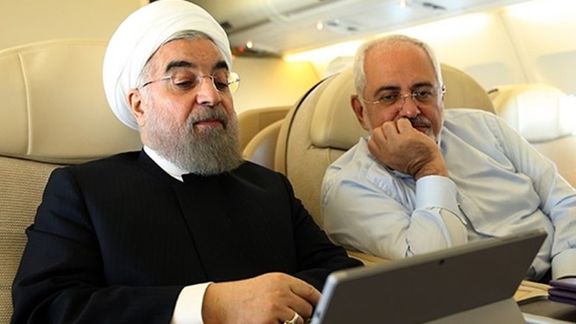
Some Iranian hardliners have been advocating for involvement in the Gaza war despite warnings from Israel, the United States and senior politicians in Tehran.
Former Foreign Minister Javad Zarif told centrist news website Entekhab that "opposition to national interests is in the nature of some of Iran's hardliners." He had disclosed earlier that hardliners sent letters to Khamenei to encourage him to intervene in the Gaza war.
Zarif said on social media that "In several interviews over the past week, I tried to explain Israel's warmongering objectives and its inhumane treatment of Palestinians over the past 70 years. Unfortunately, some of my statements were fragmented before publication and then used selectively. At times, hardliners used my statements to further their own political game."
Last week, it was reformist journalist Sara Massoumi who first reported Zarif's speech during a meeting with reformist politicians in Tehran. Massoumi quoted Zarif as having said: "If Iran is dragged into the Israel-Gaza war, nothing is going to happen to any of Iran's state officials! The bombs are going to fall on the people."
Elsewhere in the speech Zarif asked: "So far who has suffered from the sanctions? Those who make several millions of dollars, or the poor people?"
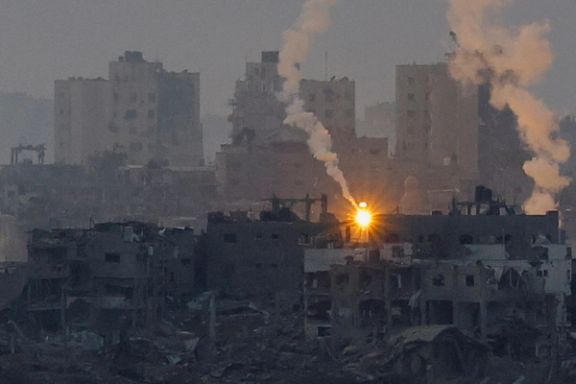
Zarif posted a video of his statement on YouTube and X, and called on viewers to see for themselves that those who accuse him of not having any concern for Palestinians were wrong or biased in their judgement. He also reiterated his call for Islamic and national solidarity in support of Palestinians.
Nonetheless, his critics continued to attack him on social media. "Congratulations Mr. Zarif! Your video clip is being used by Israeli and European channels with the caption 'Former Iranian Foreign Minister says Gaza has nothing to do with Iran.' Once again you backstabbed Iran among the Resistance groups and countries."
Zarif, in return, told Entekhab that the accusations were part of a factional polarization attempt to poison the mood in the society." Zarif had said in an earlier interview on Telegram that "Israel dreams of getting Iran and the Lebanese Hezbollah involved in the Gaza war.”
In another statement, Zarif accused Iranian hardliners of boosting Iranophobia and Islamophobia in the world with their behavior. He added that Iran has been eliminated from the international scene as many big powers do not like to engage with Tehran. He added that none of the powerful world players, particularly Russia want Iran to be able to play any part on international scene.
He further referred to the controversy about the use of Iranian drones in Russia's war against Ukraine and accused Russia of letting down Iran by getting the drones from Tehran and then disclosing Iran’s involvement in the war.
Last week, former President Hassan Rouhani had also warned against Iran becoming involved in the Israel-Hamas war in Gaza. Rouhani addressed the ongoing conflict in Gaza, warning that regime’s role in flaming the conflict was putting Iran at risk. He emphasized the potential consequences of its direct, or indirect involvement through proxies, warning that "a mistake, a wrong decision, or an imprecise action could drag the flames of war towards us."
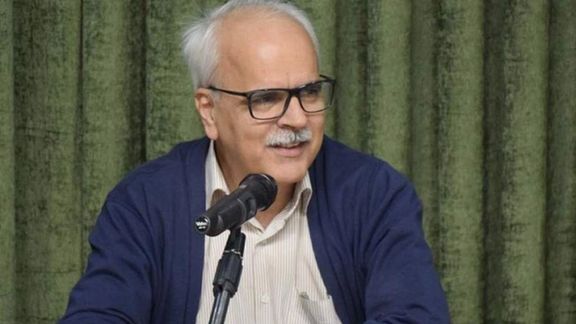
Saeed Madani, a jailed Iranian sociologist, has issued a statement from Evin Prison emphasizing the political opportunity for civil resistance in the upcoming parliamentary elections.
While the election Scheduled for March 1, Madani highlighted the chance to capitalize on the momentum of the 2022 uprising which has called for a nationwide shift away from the regime.
In February, Mousavi, from his confinement, called for the preparation of a new constitution to save Iran. Mousavi outlined the core principles of the new constitution within the framework of the Women, Life, Freedom movement.
Madani was sentenced to nine years in prison in January on charges of "forming and managing dissident groups against the system" and "propaganda against the Islamic Republic."
He called for international standards for the elections, expressing that “those advocating for change would support boycotting the elections if these standards are not met.”
Referring to the stance of Mir Hossein Mousavi, a leader of the Green Movement who opposes symbolic elections and advocates for a boycott, Madani asserted, "It is time for reformists to prioritize justice and truth."
The statement by the imprisoned researcher and national-religious political activist coincides with reports of widespread disqualifications of lawmakers critical of President Ebrahim Raisi's government. As of Sunday, approximately 40 current members of parliament and several former lawmakers or top officials were barred by the interior ministry from running in the elections.
The mass disqualifications have raised concerns among regime insiders about the potential for low voter turnout in the upcoming parliamentary elections.
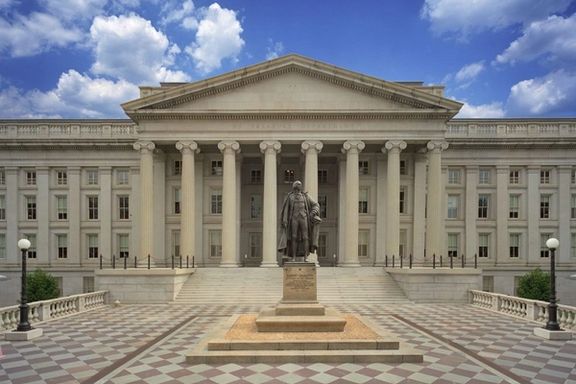
The United States and Britain imposed a fresh round of sanctions on Tuesday targeting Hamas as they seek to cut off funding for the militant Palestinian group.
The United States announced its third round of sanctions since the October 7 Hamas terror attack on Israel. The measures target key Hamas officials and the mechanisms through which Iran provides support to Hamas and its ally Palestinian Islamic Jihad (PIJ), another militant group.
US State Department in announcing the sanctions particularly focused on the financial and military support by the Iranian regime to Hamas and other militant groups.
Secretary of State Antony Blinken in a statement highlighted that “Iran’s support, primarily through its Islamic Revolutionary Guard Corps, enables Hamas and PIJ’s terrorist activities, including through the transfer of funds and the provision of both weapons and operational training. Iran has trained PIJ fighters to produce and develop missiles in Gaza while also funding groups that provide financial support to PIJ-affiliated fighters.”
Britain added six new designations to its counter-terrorism sanctions list, including four individuals linked to Hamas, an update to the UK government website showed.
"The United States will continue to work with our partners, including the U.K., to deny Hamas the ability to raise and use funds to carry out its atrocities," Treasury Secretary Janet Yellen said in a statement.
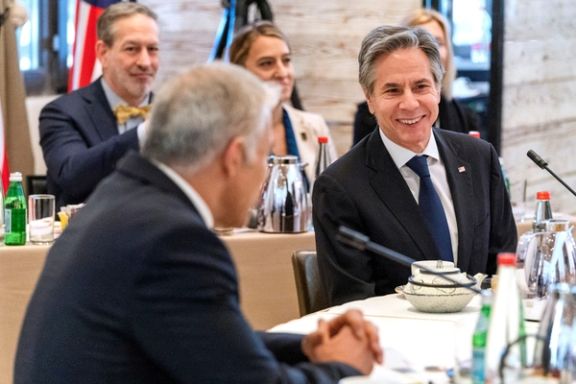
"Hamas’s actions have caused immense suffering and shown that terrorism does not occur in isolation. Together with our partners we are decisively moving to degrade Hamas's financial infrastructure, cut them off from outside funding, and block the new funding channels they seek to finance their heinous acts."
Israel vowed to wipe out Hamas after the militant group's fighters burst across the fence around the Gaza enclave on October 7 and rampaged through Israeli towns killing civilians. Israel says 1,200 people were killed and around 240 were dragged back to Gaza as hostages in the deadliest day of its 75-year history.
There are also thousands of casualties in Gaza as a result of Israeli attacks, although there is no independent estimate of the exact numbers.
FINANCES TARGETED
Since the terror attack, Washington has imposed three rounds of sanctions on Hamas. It has targeted the group's investment portfolio and issued an alert to financial institutions on countering Hamas financing while senior officials have discussed the group's access to funds on trips abroad.
Hamas is designated a terrorist group by Israel, the United States, the European Union, Britain and others.
Washington's action on Tuesday specifically targeted Mahmoud Khaled Zahhar, a senior member and co-founder of Hamas, the PIJ's representative to Iran and the Damascus-based Deputy Secretary General of PIJ and leader of its militant wing.
Lebanon-based money exchange company Nabil Chouman & Co was also targeted, along with its owner and founder. Treasury said Hamas uses the company to transfer money from Iran to Gaza and accused it of having transferred tens of millions of dollars to the group.
Washington's move freezes any US assets of those targeted and generally bars Americans from dealing with them. Those who engage in certain transactions with them also risk being hit with sanctions.
US Deputy Treasury Secretary Wally Adeyemo told Reuters last week that efforts to cut off Hamas funding would increasingly focus on facilitators in third countries, and that it would take coordination with allies and partners to shut off those avenues. His recent trip to Europe centered on fostering more cooperation in this area.
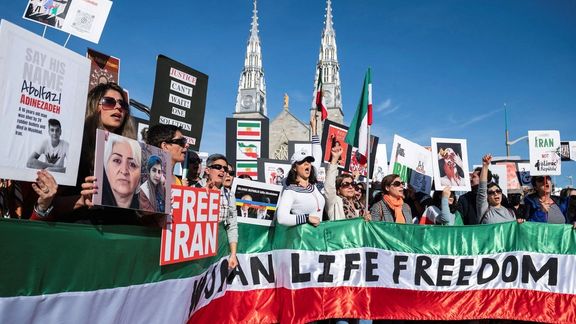
Iranian dissidents continue to suffer threats from the Islamic Republic's agents and live in fear of imminent harm in Canada, according to a report published by the Canadian outlet Global News.
The report covers not only the lives of journalists and political activists but also those from other professions living abroad who feel unsafe.
Canada has a particularly serious problem with hundreds, perhaps thousands, of regime-connected officials on its soil, according to a lengthy Global News investigation. An infamous example is Mahmoud Khavari, ex-CEO of Iran’s national bank who has been wanted by Interpol and reportedly fled to Canada in 2011 after being accused of embezzling $2.6 billion.
As part of its efforts to address this issue, Canada has expanded targeted sanctions against certain members of the IRGC group and amended its Magnitsky legislation in order to allow the government to go after the assets of Iranians implicated in human rights abuses and corruption, but the dissidents say that these measures do not suffice.
Prime Minister Trudeau has refused to declare the IRGC a terror group because some Iranians are compelled to join the group as part of their mandatory military service.
Nonetheless, the diaspora contends that if the IRGC were on the terrorist list, members who have gained Canadian citizenship would be liable for crimes committed overseas and subject to much harsher penalties.
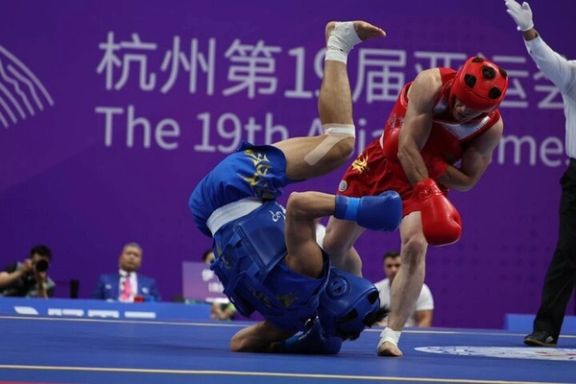
The Iranian national team faces exclusion from the World Wushu Championships due to the United States' failure to issue visas.
Amir Sadeghi, the head of the Wushu Federation, expressed deep disappointment, stating, "Unfortunately, the visa request for the entire Iranian delegation was left unanswered." The Iranian team was poised to compete in the World Championship scheduled in Texas, USA, from November 15.
Sadeghi emphasized the contradiction to the spirit of sportsmanship, saying, "Once again, contrary to the principles of fair play, the US did not issue visas in a timely manner for the Iranian national team."
Highlighting Iran's proactive approach, Sadeghi mentioned, "According to the organizing committee, Iran was the first country to initiate the visa issuance process. We started the necessary procedures in April, presented ourselves at the US Embassy in Yerevan, Armenia, in mid-May – an unusual four months before the competition – for interviews and document submission."
In July, The US State Department also refused the visas for the latest round of the Volleyball Nations League in California, while a long list of officials accompanying the team in the US were granted the visas. The visit sparked controversy in Tehran, where the Iranian public are funding bureaucrats' travel at the expense of key athletes.